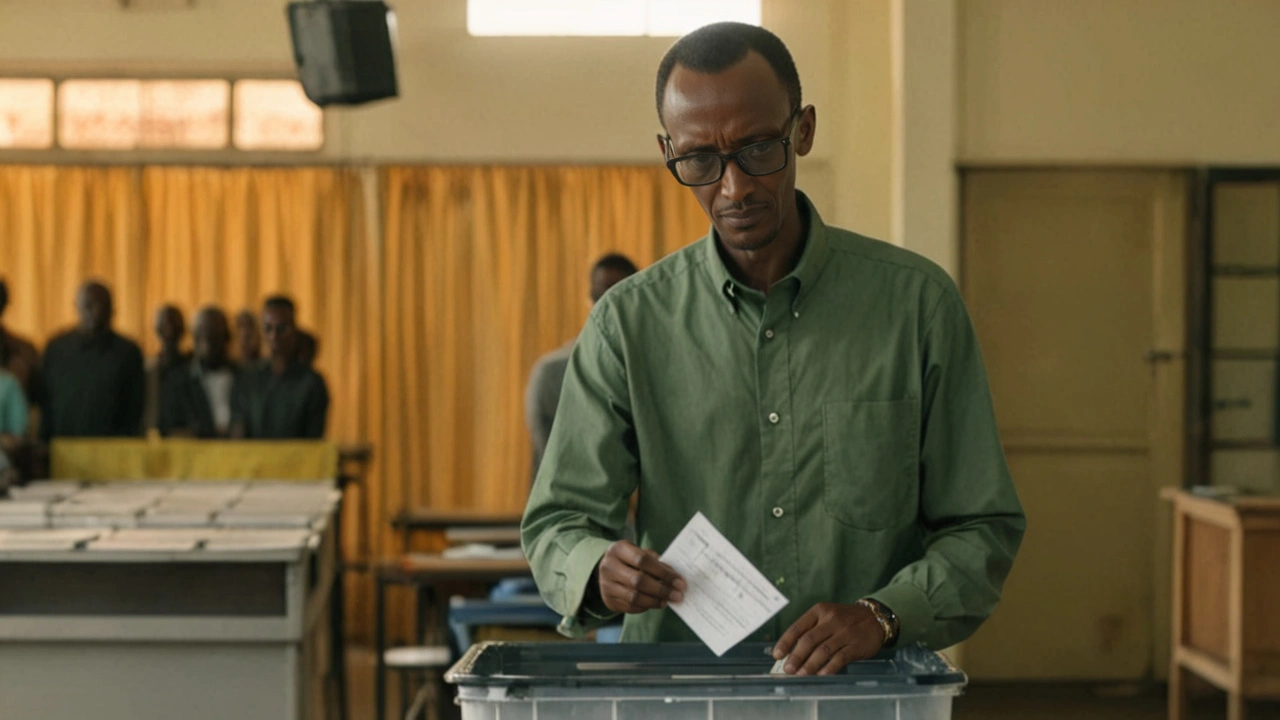Paul Kagame Clinches Fourth Term as Rwandan President with Overwhelming Victory
In a landslide victory, Rwandan President Paul Kagame has secured his fourth term in office, obtaining a staggering 99.15% of the vote. The election outcome seemed a foregone conclusion, particularly given Kagame’s three-decade-long dominance in the political landscape of Rwanda. As the de facto leader and president, Kagame’s influence has been significant, shaping the country’s trajectory both economically and politically.
The election saw Kagame's ruling Rwanda Patriotic Front (RPF) party heavily rallying support for him. Meanwhile, opposition parties found it nearly impossible to make any substantial headway. Only two challengers were permitted to run against Kagame, which underscored the challenges faced by the opposition in gaining visibility and traction. This lack of genuine competition in the electoral process has been a recurring issue in Rwandan politics, and this election was no exception.
One cannot overlook Kagame’s role in Rwanda's remarkable economic transformation. From 2012 to 2022, Rwanda's Gross Domestic Product (GDP) experienced an impressive average annual growth rate of 7.2%. This economic boom has been a core part of Kagame's leadership, turning Rwanda from a country plagued by the horrors of the 1994 genocide into one of Africa's fastest-growing economies. His administration has focused on infrastructure development, incentivizing foreign investment, and promoting technology and innovation as pillars of economic growth.
Economic Growth Amid Authoritarian Rule
However, Kagame's success story comes with significant caveats. His government has been frequently accused of authoritarianism, ruling with an iron fist that tolerates no dissent. International human rights organizations have consistently criticized the political climate in Rwanda for severe restrictions on political oppositions, arbitrary arrests, and enforced disappearances. These allegations paint a grim picture of Rwanda's human rights records under Kagame’s rule despite economic advancements.
The suppression of political dissent and civil liberties in Rwanda has drawn the ire of international communities. Reports of threats and intimidation against opposition parties and political activists are rife. Arbitrary detentions and the mysterious disappearances of government critics have become all too common. These factors collectively undermine the democratic fabric of the nation, raising questions about the legitimacy of Kagame's electoral victories.
Foreign Policy and Regional Influence
Beyond its borders, Rwanda’s foreign policy, particularly with its neighbor the Democratic Republic of Congo (DRC), has also been a source of substantial controversy. Kagame’s administration has faced accusations of meddling in the affairs of the DRC, with allegations of supporting rebel groups to destabilize the region. This involvement has been a cause for regional tensions and has drawn international criticism, further complicating Kagame’s legacy.
Given the context of Kagame's re-election, their responses from the international community were mixed, with some countries acknowledging the stability and economic growth under his rule, while others called for greater accountability and political freedom in Rwanda. The consistent scrutiny of his government’s human rights record underscores the complex interplay between economic development and political repression in Kagame's Rwanda.
Concluding Thoughts
As Paul Kagame embarks on his fourth term as president, Rwanda stands at a pivotal juncture. The path ahead holds both promise and challenge. Kagame’s administration must navigate the delicate balance between sustaining economic growth and respecting human rights and political freedoms. For Rwanda to continue its trajectory towards progress, the government must address the concerns of political suppression and expand the space for meaningful opposition participation. Only then can Rwanda build an inclusive and democratically robust future where economic prosperity is complemented by political freedom.

Comments